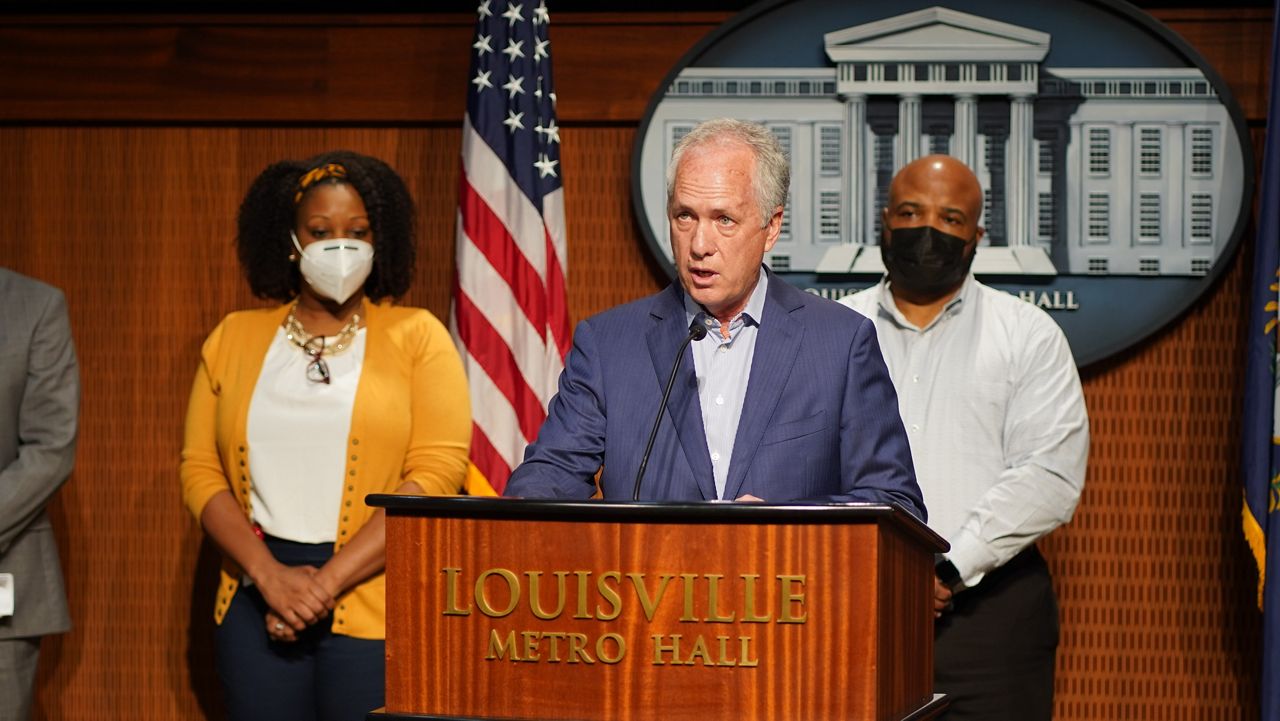LOUISVILLE, Ky. — Louisville leaders are proposing mid-year spending adjustments that hope to address public safety concerns and strengthen city services.
What You Need To Know
- Louisville Mayor Greg Fischer is floating mid-year budget changes aimed at solving public safety and city workforce issues
- The adjustments would utilize savings and revenue growth to improve staffing at public safety agencies, improve Public Works operations and implement canine patrols at the city jail
- The amended ordinance will be considered at a Budget Committee on Thursday, and could be voted on by the full Council as soon as Thursday, Dec. 16
- Louisville Metro Government currently has a turnover rate of 7.04%
Mayor Greg Fischer and Metro councilmembers on Thursday introduced an amended budget that would utilize savings and unanticipated revenue growth to help stabilize the city's workforce. According to a press release from Fischer's office, the proposal also includes incentives to address staffing challenges at public safety agencies, updates to the city’s fleet and new canine patrols at Metro Corrections.
The amended ordinance will be considered at a Budget Committee on Thursday, and could be voted on by the full Council as soon as Thursday, Dec. 16.
The spending adjustments include $4.8 million in American Rescue Plan funding for incentives to attract new quality applicants for public safety positions, plus a $20 million surplus from FY21 that would provide:
- $12.5 million in wage adjustments to stabilize the city government's workforce.
- $72,000 to add two canines to patrol the jail, aimed at finding and removing illegal substances.
- $172,500 to hire zoning officers.
- $5 million in matching funds for a federal Build Back Better Regional Challenge grant of $50 million to enhance and make more equitable the AI, data and healthcare workforce.
- $5.7 million for Public Works to purchase additional fleet, primarily to replace outdated sanitation equipment and dump trucks.
LMG’s current turnover rate, just five months into the fiscal year, is 7.04%, and many of those leaving said they are being drawn to the private sector in large part by greater compensation, Fischer said. Many of Metro’s union contracts included wage increases of zero to 2% increases, and its non-union grid has not been adjusted since 2016.
“This proposal will help us retain and attract quality employees, especially in our over-stretched public safety agencies,” said Fischer.
In a press release, Council President David James (D-6), said, “I’m thrilled that we will be able to use more funding to help rebuild our Public Safety staffing levels and to help protect our citizens. And the addition of drug-sniffing K-9 teams at the jail, brought forward by Councilwoman Amy Holton Stewart, will help fill a safety gap that has existed for quite some time in Metro Corrections.”



